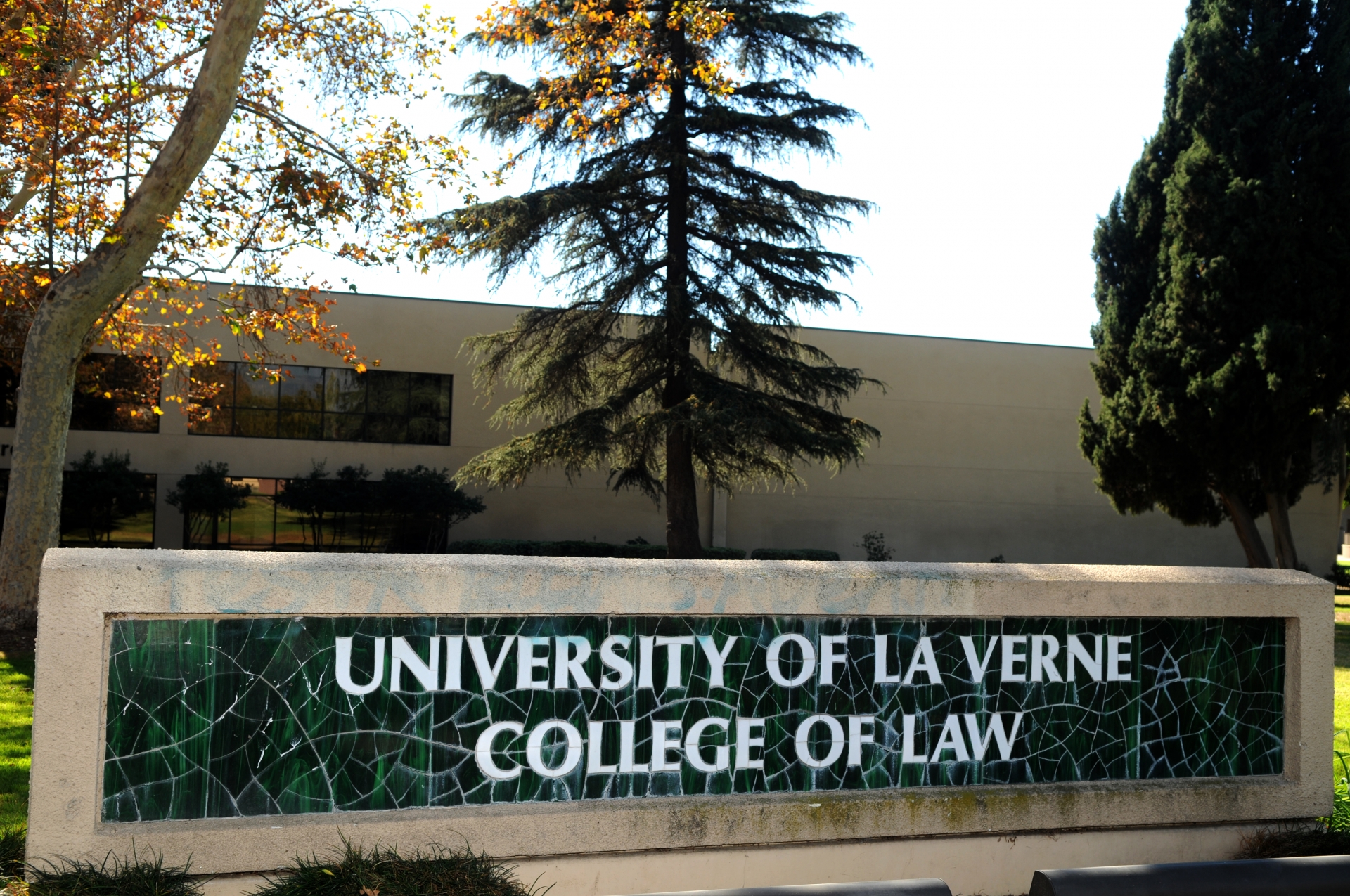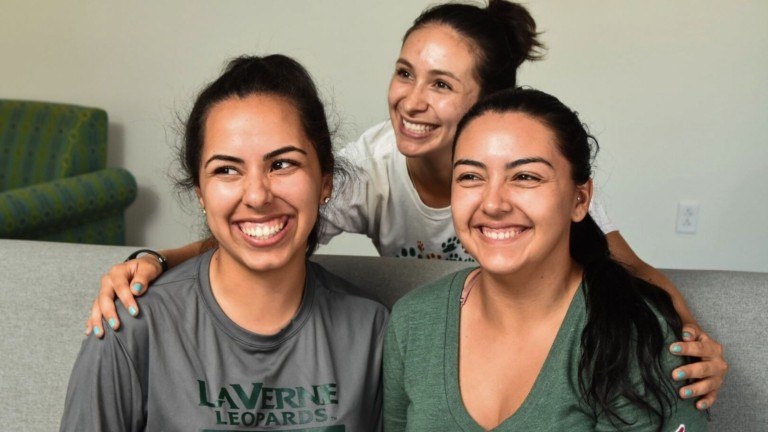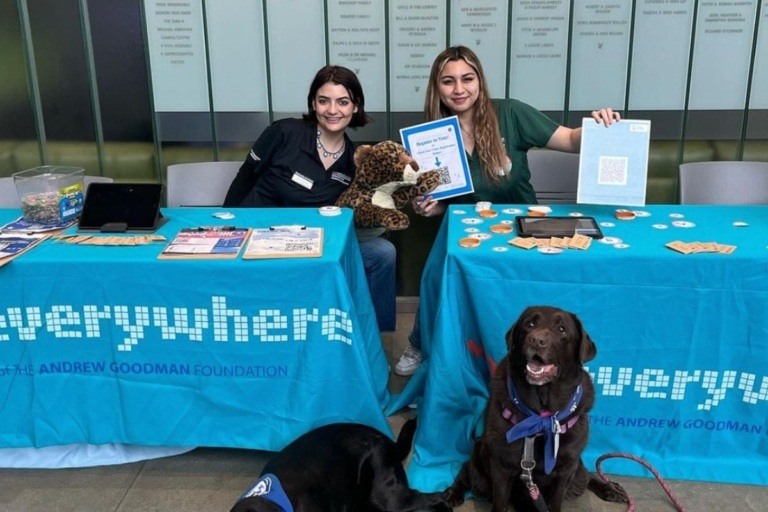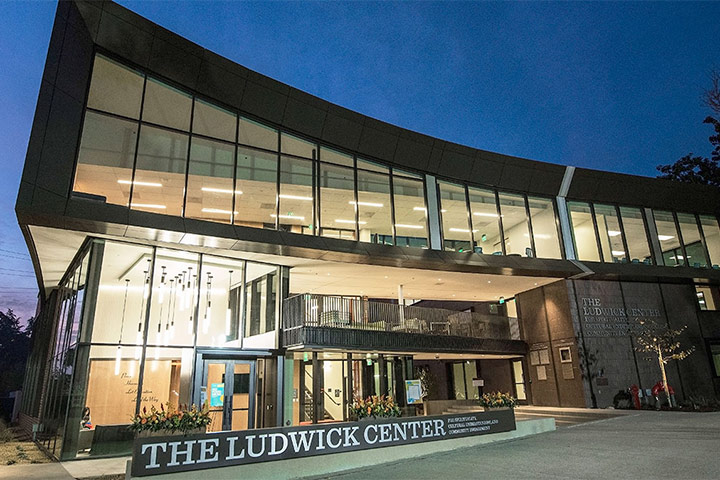College of Law Litigation Track Students Collaborate With Undergraduates for Trial Advocacy Class

What began as a routine traffic stop involving police Officer John Purley and motorist Janet Smith in the fictitious town of Onto escalated to violence and, ultimately, the officer’s death. In the end, jurors in a courtroom sided with the woman, saying she resorted to deadly force to resist an unlawful arrest.
The premise of the trial is a familiar one with similar elements seen in courtrooms across the country.
But that is where the similarity ends. For the University of La Verne’s College of Law trial advocacy class in November, the attorneys and jurors were students. In a separate room, students watched jury deliberations unfold through a live video feed. And after the verdicts were rendered, the “attorneys” and “jurors” reflected on the experience.
“The graduate law students and the undergraduate students engaged in collaborative discussions as to what worked and did not work in terms of making their respective cases, with graduate and undergraduate students cross-informing and providing relevant, value-added advice and instruction to one another. It was a grand moment,” said Professor of Law Dr. Kevin Marshall.
While trial advocacy classes are not a new concept to law schools and mock trials are offered in some K-12 education settings, La Verne’s approach is unique because students from the main campus collaborate with law students, and the video feed provides a perspective lawyers do not get in a real trial, says Visiting Professor of Law Michael O’Connor.
“Something we forget as lawyers is if you’re doing trial work, it is non-lawyers who will decide the merits of your case,” O’Connor said. “Getting the feedback from the undergraduates is, in some ways, more valuable than getting feedback from the professors.”
The idea to combine law students with undergraduates came from O’Connor and Visiting Professor of Law Placido Gomez, who have been working together to structure the College of Law’s litigation track – three courses encompassing criminal procedure, evidence and trial advocacy. O’Connor has guest lectured for some of Gomez’s First-year La Verne Experience undergraduate courses on the main campus. Visiting Professor of Law Celia Rumann also worked with O’Connor and Gomez on expanding the mock trial portion of the trial advocacy course.
“We began to think of how we can begin to use these cross-pollination efforts to create a richer experience with the litigation track,” O’Connor said.
They decided to pair students in the litigation track with students from a First-year La Verne Experience sociology community for the mock trials. Gomez also reached out to COL Information Technology Specialist Brian Parker to add a video feed of juror deliberations.
Gomez said students from both groups benefitted from the experience.
“For the FLEX students, the project moved them beyond the undergraduate classroom into an experiential law course at the law school,” Gomez said. “They engaged in a formal group decision-making process that forced them to analyze information presented in a variety of ways, discuss their perceptions and perspectives, and agree on an outcome.”
College of Law student Jerlisia Farmer, who hopes to one day open her own law practice, said the experience helped her understand how to speak to the average juror.
“The majority of people do not have long attention spans, so the information given to them must be delivered in a short and simple way,” she said. “Jurors also pick up on buzz words. Using the correct buzz words may give an attorney an advantage at trial.”
Criminology major Adrianna Yanez, who is interested in becoming a correctional officer for a juvenile detention center, said serving as a juror during the mock trial was eye opening.
“Working with the law students was an amazing opportunity. It was actually extremely interesting to see students who will be future lawyers working in their own environment. Getting a first-hand view of how lawyers work really made me realize how much work goes into just one court case,” Yanez said.
The College of Law plans to expand the program to more students in the future.


